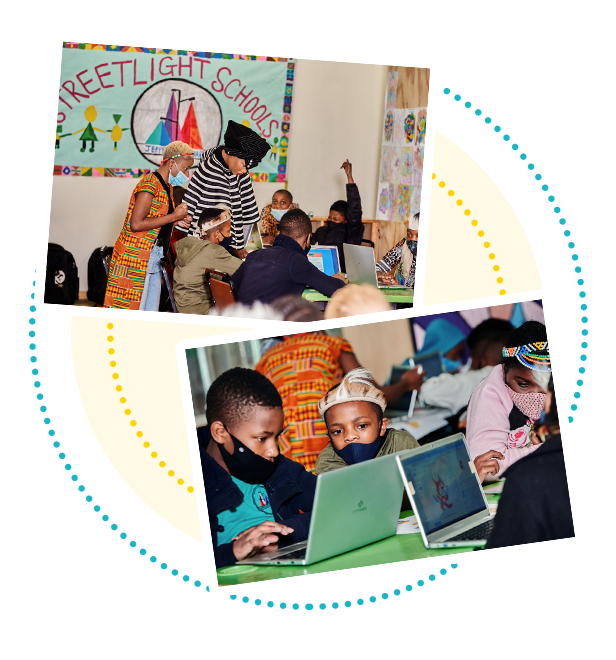
From age 3 to 6, the children are taught the principles of computational thinking such as algorithms, logic, and debugging through various technologies with coding logic such as robots and LEGO technology.
They learn basic programming concepts and the Python programming language from the ages of 7 to 9 (grades 1-4). At the end of this level, they can produce a basic program. By the age of 10-12 (grades 5-7), they are taught to develop confidence in their abilities by correcting basic errors in their codes. They also begin to proffer new solutions. “We want our children to not just become consumers of technology from other countries, but to also be in a position to contribute to that technology,”
The curriculum developed for the CodeNgwana program contributes to the existing body of coding literature and is a leading program in South Africa given its targeted approach towards young children. The program focuses on providing children, who previously have not had access to technology, an opportunity to learn and actively engage in technology concepts. The curriculum framework is designed in such a way that it can be applied in various settings across South Africa
Components of the CAPS curriculum are also incorporated into the literature to meet the Department of Education’s requirements and ensure the curriculum remains relevant to the child. The curriculum serves as a foundation that supports additional initiatives, such as STEM, and equips children with digital and problem solving skills, allowing them to partake in a multitude of future digital job opportunities.
The curriculum developed for the CodeNgwana program contributes to the existing body of coding literature and is a leading program in South Africa given its targeted approach towards young children. The program focuses on providing children, who previously have not had access to technology, an opportunity to learn and actively engage in technology concepts. The curriculum framework is designed in such a way that it can be applied in various settings across South Africa
Components of the CAPS curriculum are also incorporated into the literature to meet the Department of Education’s requirements and ensure the curriculum remains relevant to the child. The curriculum serves as a foundation that supports additional initiatives, such as STEM, and equips children with digital and problem solving skills, allowing them to partake in a multitude of future digital job opportunities.

